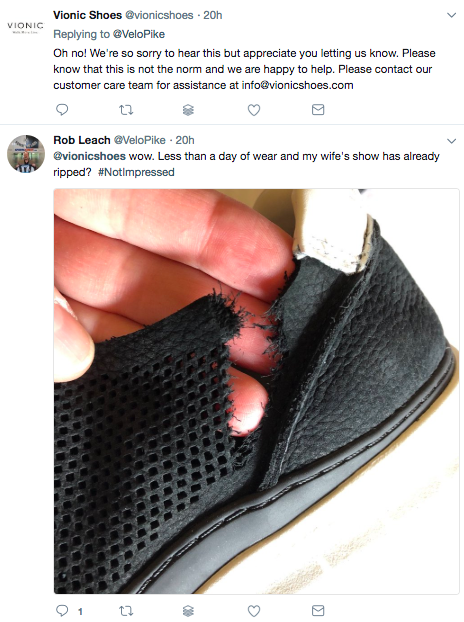Best Practices for Responding to Social Media Comments
This post is contributed by Margie Zable Fisher, president of Zable Fisher Public Relations, which specializes in ecommerce and product P.R. and publicity.
![]()
Many ecommerce marketers know social media is a great way to build deeper relationships with customers. Yet, while social media may be more “casual” than other types of customer communications, it’s important to interact on social media platforms as you would in any business environment — professionally, thoughtfully and responsively. Here are some ways to do just that.
Establishing a Consistent Tone
It’s always important to use your company’s “brand voice,” or tone and personality. Is your company serious and professional or fun and laid back? Should you use GIFs and emojis? This depends on your target audience and brand values. The target audience should always guide the content you create.
Responding to Complaints and Criticism
Did you know that 67% of consumers now use social media to find help with issues?
It may not be fun to respond to negative feedback. But ignoring or deleting negative comments on social media can make the situation worse. Customers feel annoyed and undervalued when they are ignored. And 88% of customers with unanswered social media complaints said they are less likely to buy from the company in the future. Deleting comments makes your company appear untrustworthy and unwilling to accept feedback.
Customers also expect quick responses. In fact, 78 percent of people who complain to a brand via Twitter expect a response within an hour. This might not be realistic, depending on your staff and resources. But responding to social media comments as soon as possible is still important.
View complaints as an opportunity to show off openness to constructive feedback. If your company can solve the person’s problem, it can turn an unsatisfied customer into a loyal follower. Sometimes those customers even thank you through social media, as in this example:

If a customer is posting in a hostile or rude manner, it is important that you remain polite, professional, and lead with empathy. In other words, don’t be defensive. A sincere apology and/or being sympathetic can go a long way, even if the problem is not your company’s fault. Here is a great example:

Answering Questions and Listening to Consumers
Consumers expect a timely response to their questions, especially if the issue is time sensitive. Questions can show what information customers need and what products have issues. They can also provide new product ideas. Check out this example from Brooks’ Instagram account:

Responding to each question would be nice. But it may be too time-consuming. Instead, Brooks could create a new post answering questions that came up about this sneaker. The brand could even tag some of the folks who asked the question. Besides posting, you can answer questions in live streams or pre-recorded tutorials and Q&A videos.
Reacting to Positive Comments
While you may shudder when you see a complaint on social media, a positive comment may make you downright giddy! These types of messages are also opportunities for you to engage with customers and deepen relationships.
Responding to social media comments individually is fun, when possible. Maggie Louise Confections does a great job of responding by thanking everyone.

Looking Outside of Your Company’s Social Media Accounts
Your company shouldn’t be afraid to venture past your own social media pages and groups to see what kind of conversations people are having. Nearly 100% of the people that discuss brands online do not follow those brands’ owned profiles. So it would be a missed opportunity for you to not respond to what others are saying, whether it is a complaint or a shoutout.
Moving Forward
Whether you’ve been responding to social media comments for years, or just starting, using best practices will help you build and create relationships. That in turn will lead to more repeat and new sales.





